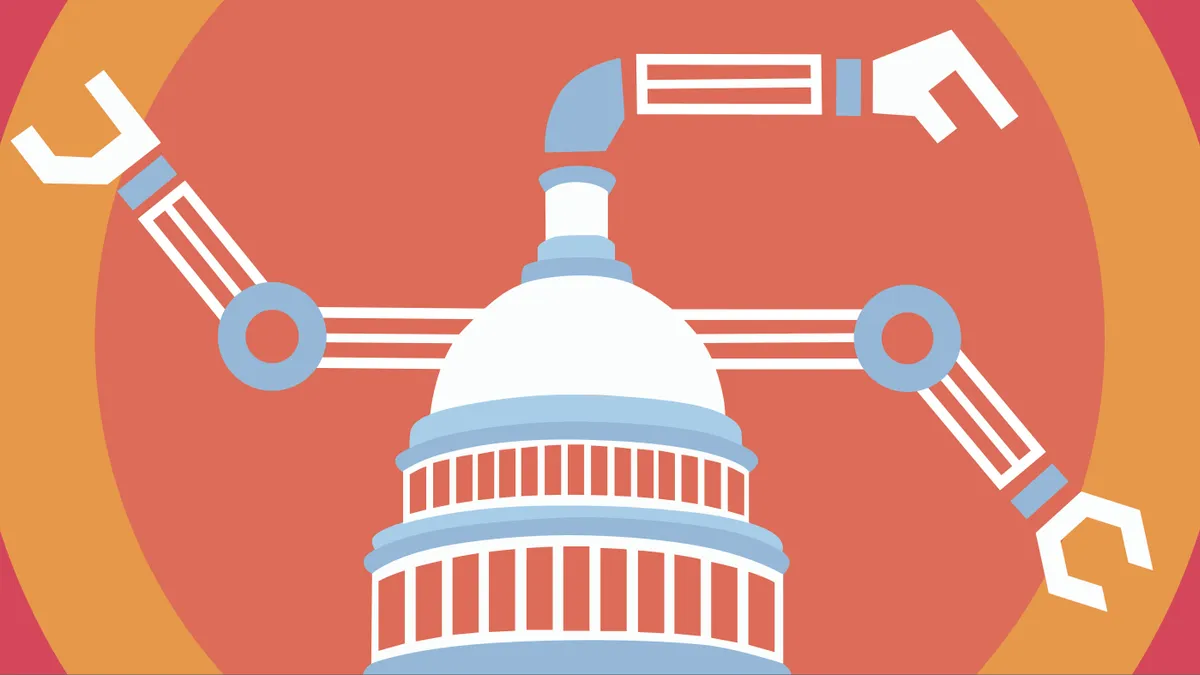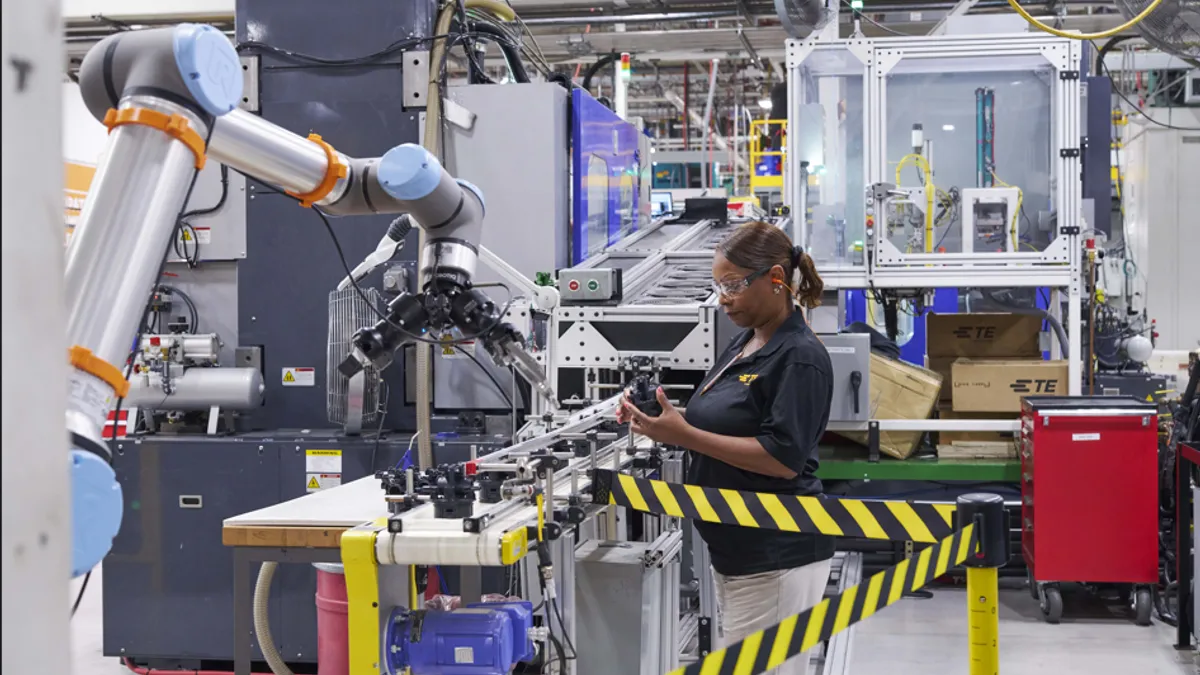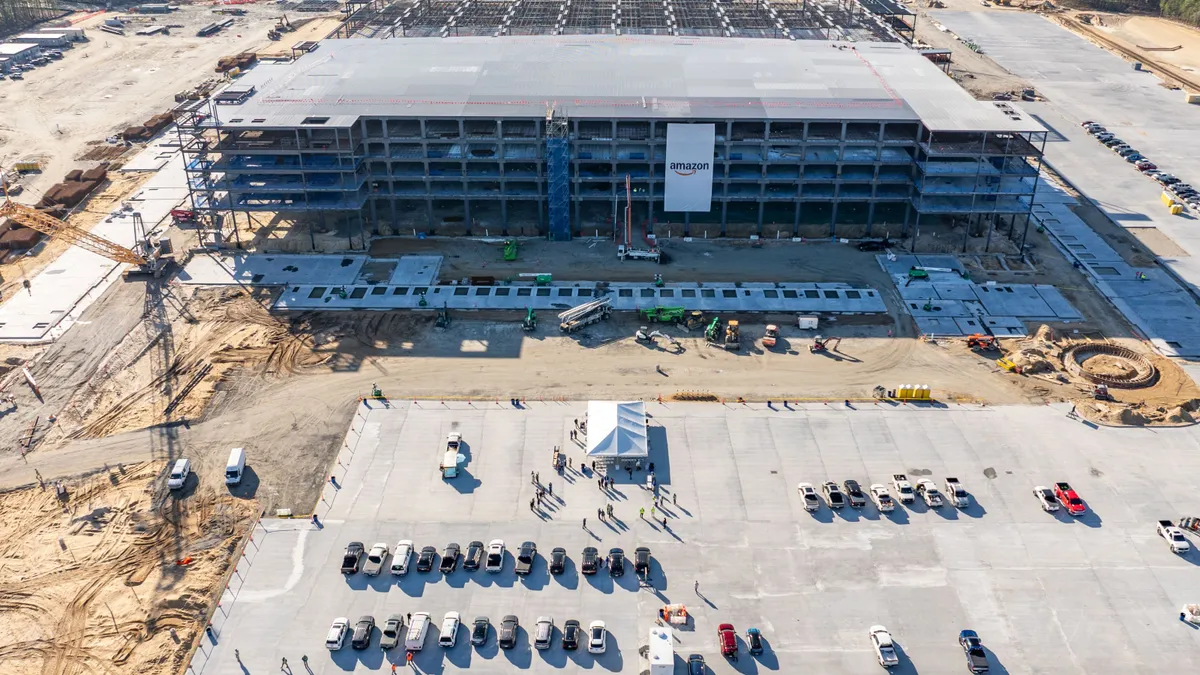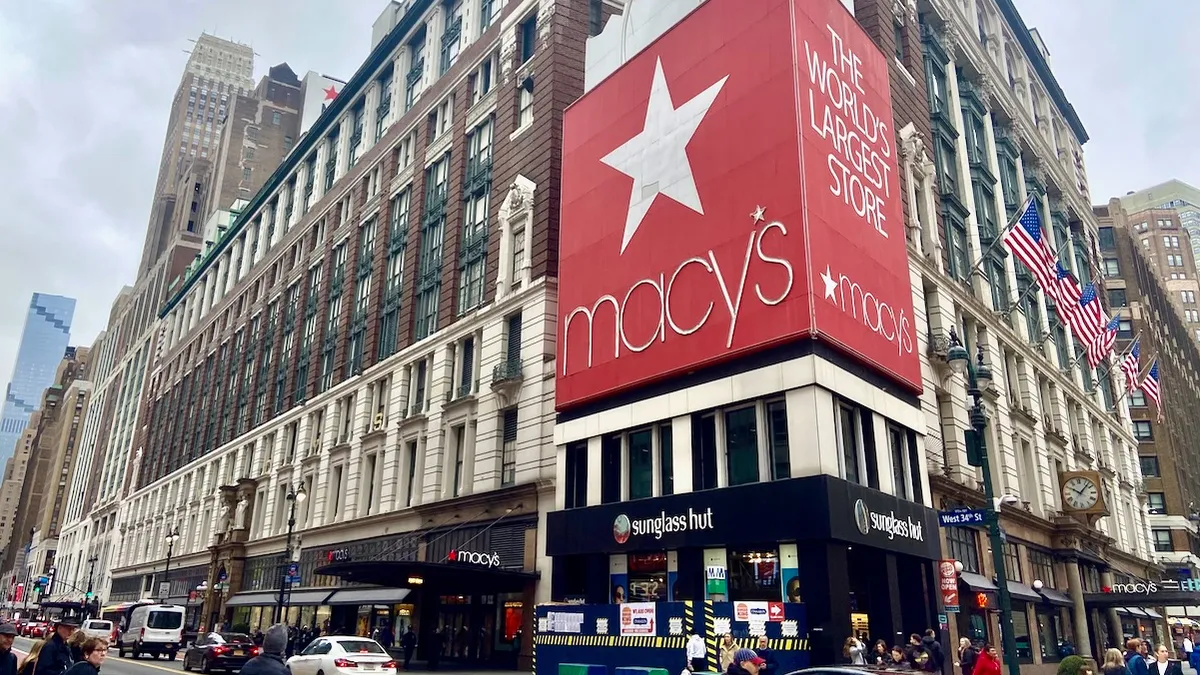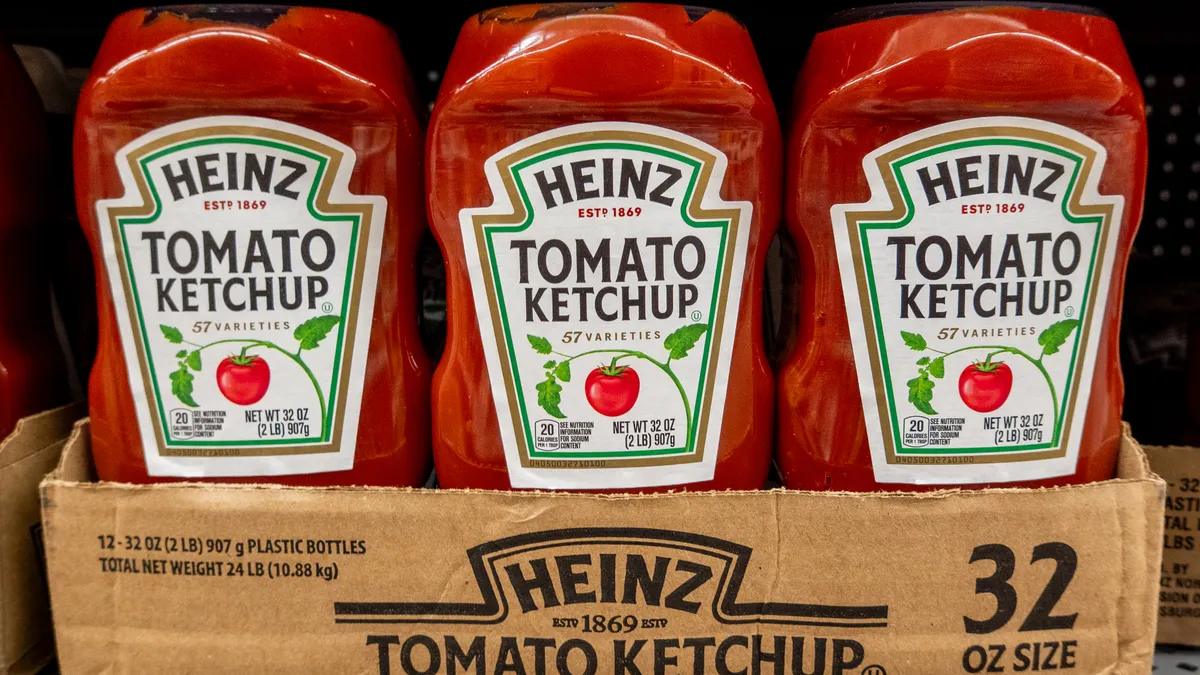Editor's Note: The following is a weekly column covering technology and regulation within the supply chain and logistics industries
Private label sourcing on the uptick
Thomasnet.com provided Supply Chain Dive with data and fun graphs depicting manufacturing trends, collected from the past 12 weeks:
The prevalence of injection molding is notable: that's a product sourced by manufacturers, meaning there's lots of injection molding companies out there servicing manufacturers, which potentially puts them at risk for displacement because of the rise of (you guessed it) 3-D printing.
Just a quick Google search comparing injection molding to 3-D printing reveals pages of articles and blog posts dedicated to explaining the differences, the cost-per-unit analysis, and which one is better for which manufacturing scenarios.
Last summer I talked to the CEO and co-founder of 3-D printing startup Voodoo, who believes 3-D printing has a real chance of disrupting the additive manufacturing sector, because 3-D printing shortens the long lead times of injection molding and doesn't have as many upfront costs.
If manufacturers are relying this much on injection molding, then theoretically, 3-D printing startups could easily slide over and steal business.
According to this graph, it looks like private label sourcing is on the uptick, and doing a lot better than it did this time last year, which suggests companies are tightening brand and supply chain control. In an increasingly competitive market threatened by e-commerce, big companies are probably feeling the pressure to differentiate themselves more.
But manufacturers are unsure about AVs
Earlier this week, PwC released its Industrial Mobility Report: How autonomous vehicles can change manufacturing, revealing that manufacturers believe AVs are the future but are still hesitating to adopt.
Maybe that's because lawmakers and automakers still haven't worked out all the kinks: "Tesla" is a polarizing word, and the recent fatal crashes involving its Autopilot system aren't exactly comforting, even to the optimists.
Furthermore, Tesla's Q4 2017 earnings were a pretty big disappointment: production for the Model 3 got pushed back, again; the company's working capital descended from $600 million to negative $1,065 million; and the gross profit margins on the Model S and the Model X declined.
Then again, Musk has always delivered on his promises, even if he never delivers when he says he will. Despite the disappointing Q4, Tesla believers are sure the company will rebound — eventually.
FRA gets its hand slapped
Speaking of crashes, the National Transportation Safety Board told the Federal Railroad Administration to start administering sleep apnea tests again after discovering that the two most recent rail crashes involved rail workers with undiagnosed sleep apnea, according to Fleet Owner.
While rail crashes aren't as commonplace as highway crashes involving semi-trucks, both types of accidents have at least one thing in common: employees with sleep apnea working late hours.
It's not only dangerous, it's inexcusable, but neither industry has a foolproof solution: the ELD mandate is supposed to help the trucking industry's problem, but many drivers think it's only worsening work conditions.
How blockchain could help end modern slavery and poverty
We talk a lot about how blockchain the degree of its impact on how companies do business, but one blockchain alliance — the Sweetbridge Blockchain Alliance — is talking about how blockchain could end modern slavery and help eliminate poverty.
Sound like a tall order? That's because it is — but President Mac McGary thinks if companies can use blockchain to find out who the "bad actors" are in their supply chains, they can then start incentivizing those "bad actors" to do the right thing.
The problem, he says, is that in developing countries with struggling economies, local workers willingly take underpaid jobs and allow children to take underpaid or unpaid work and work long hours because those are often the only jobs available. To them, what more developed countries might consider a slavish job is better than nothing.
With blockchain — an immutable ledger that can solve the issues of trust and transparency between a company and its suppliers — a big company with an extended global supply chain could potentially identify which localized suppliers were struggling, reward them for good behavior and help them get access to capital so that they can thrive and pay workers a living wage.
"It’s not just let’s implement technology because we save a few dollars here and there," McGary told Supply Chain Dive. "Let’s have a social impact with this technology."
In case you missed it
SpaceX sent Elon Musk's Tesla Roadster into space, but it's more than just a massive display of ego, it's proving that SpaceX rockets can more efficiently and effectively transport humans and cargo into space.
Walmart apparently is talking about investing "billions" in Flipkart, so maybe it's not a minority stake after all.
Uber and Waymo are headed for a legal battle about whether or not Uber stole "driverless car design secrets" from Waymo, according to The Wall Street Journal. Not only that, Uber apparently doesn't want individuals to have driverless cars in the future if they might compete with ridesharing services in an urban environment.
Looking ahead, the White House is set to release its much-anticipated infrastructure bill on Monday. Don't forget to circle back to Supply Chain Dive: we'll be keeping up with the coverage and what it means for the freight industries.
Just as an FYI, besides the American Trucking Associations, the Chamber of Commerce is also in favor of a gas tax for the Highway Trust Fund.
The Reaction
Sweetbridge wants to change how we think about eradicating poverty and slavery in the supply chain, and it's trying to get big companies on board to clean up their supply chains and source ethically. While Sweetbridge's plan is still in the development stages, it's a promising step in the right direction.
Tesla disappointed us again but SpaceX didn't, and it's safe to say that manufacturers and automakers secretly admire and desire to emulate the idealistic, forward-thinking company. Most agree that what Tesla is doing is the future, Tesla just hasn't figured out how to be profitable yet.
And finally, sleep apnea rears its ugly head again and could prompt strict regulation if such accidents continue. The ELD may have its faults and need to be adjusted, but both trucking and rail can't let accidents like these continue when there is a solution.


